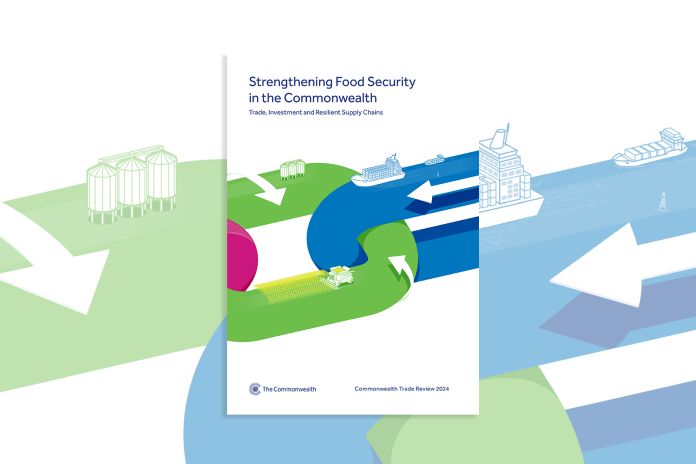LONDON, England – The world is significantly off-track in terms of achieving Sustainable Development Goal 2 on zero hunger by 2030. Eliminating hunger, ensuring food security and promoting healthy diets and better nutrition through the development of sustainable food systems are priorities for Commonwealth member countries. This 2024 edition of the Commonwealth Trade Review explores how trade, investment and resilient supply chains can bolster food security for the Commonwealth’s 2.7 billion people.
International trade is a powerful tool for building inclusive, sustainable and resilient economies and societies in the Commonwealth’s six developed economies and 50 developing countries, including 33 small states and 14 least developed countries (LDCs).
Trade, investment and finance are also indispensable for advancing the Sustainable Development Goals (SDGs), particularly in areas such as poverty reduction, food security, gender equality, decent work and economic growth. As the world approaches the mid-point of the final decade of the United Nations’ 2030 Agenda for Sustainable Development, the 56 Commonwealth member countries will need to strengthen their trade and investment collaboration, both within and beyond the Commonwealth, to achieve these global objectives and ensure long-term prosperity, especially for the smallest and most vulnerable countries.
This 2024 edition of the Commonwealth Trade Review presents new evidence that the Commonwealth advantage also supports greater agri-food trade. Commonwealth membership typically leads to a 22 percent increase in food trade between member countries compared to non-members. This effect is particularly strong for exports of fruits and vegetables, cereals, and fish products, which are essential for food security. The Commonwealth effect on food trade increases to 33 percent for Commonwealth countries that are also part of the same bilateral or regional trade agreement.
Commonwealth countries can expand their food trade through enhanced multilateral and regional co-operation. Increased domestic and international investment in food production, processing capabilities and value addition along the supply chain will be essential. This includes tapping into the Commonwealth’s large, dynamic and entrepreneurial diaspora.
Countries can modernise trade facilitation through digitalisation, while strengthening the capabilities of exporters, especially small and medium enterprises, to comply with technical and sanitary and phytosanitary requirements for food. Aid for Trade can be leveraged to build productive and supply capacities and upgrade logistics infrastructure for supply chains. Prioritising the reduction of food loss and waste, along with adopting circular economy principles, are essential for moving towards sustainable agri-food systems.
This report is a companion document to Trade, Agriculture, and Development: Meeting Global Challenges to Commonwealth Countries.





